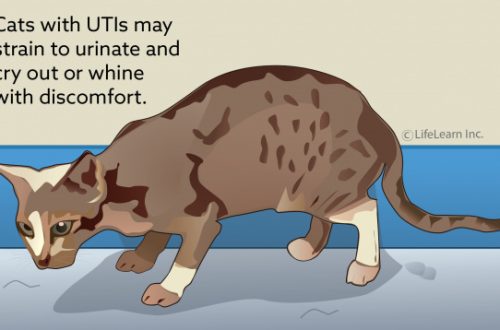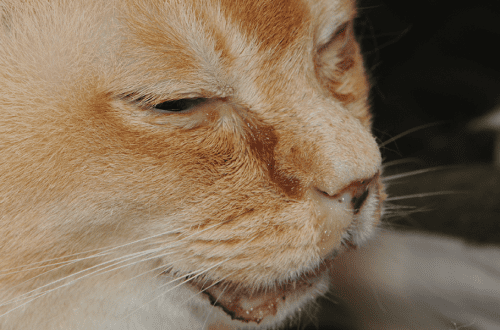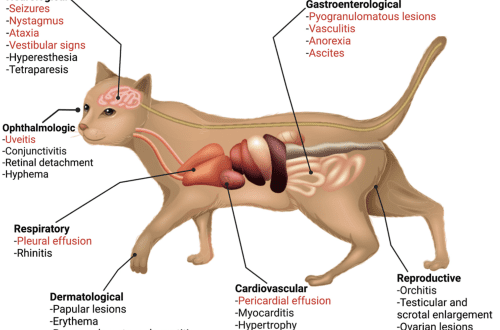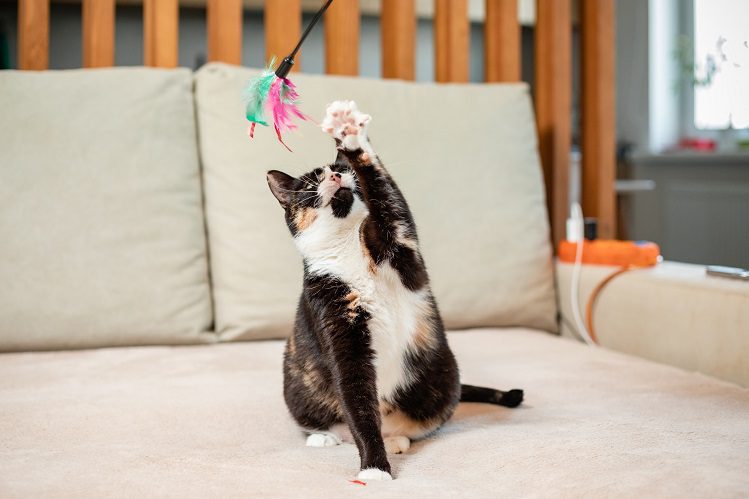
The cat attacks the owner: what to do?
What to do if you were attacked by the most terrible predator on the planet – your own cat? And why is he doing this to you?
Millions of people keep cats at home – these glorious tailed pets that seem to bring only happiness and joy. However, the neighborhood with a tailed purr may not always be pleasant, especially if cats attack their owners. Given that the mustachioed-striped are armed with claws and teeth, each such skirmish causes great discomfort.
Let’s list the main signs why a pet can hunt for your legs and arms and jump around a corner with its claws forward.
- Boredom
This is the most common reason for a cat’s active interest in you. Cats may lack attention, physical activity and fun games. The fix for this is very simple: start paying more attention to the ponytail, and the attacks will probably stop quickly.
- Stress
Just as we can scream and snap at someone during stress, cats can behave inappropriately and excitedly if something bothers them. Perhaps you recently moved, went to the veterinarian, visited, bathed or simply rearranged furniture.
It is important to pay more attention to the pet, stroke it more often, caress it and treat it with healthy snacks. But do not impose your company on the four-legged: if the cat wants to be alone, so be it. Calm down and he will begin to caress you.
- Hunting instinct
Representatives of the cat family are predators by nature. Therefore, it is not surprising that they have a very developed hunting instinct. But if village cats roam freely along the street and realize this instinct on birds and mice, then their domestic relatives are deprived of such an opportunity.
Sooner or later, the cat will begin to attack the owner’s legs passing by, which the person will definitely not like. But there is only one way out: to correct the pet’s behavior so that scratched legs and damaged clothes do not become the norm. Let the cat realize his instincts with toys, and you help him with this.

- Aggression
Such a strong feeling will not arise from scratch. If your four-legged family member has previously lived on the street or in a dysfunctional family, he may have experienced severe upheaval and even cruelty from fellow or people. Fears and worries cause cats to become aggressive in order to protect themselves.
It is necessary to work with the psyche of the animal and seek help from a zoopsychologist. Or just show patience, demonstrate to the purr that he lives in a safe place where he is loved no matter what. Over time, his cruel heart will surely soften.
Aggression can be redirected. This is when a cat, say, saw another cat in the window that entered its territory. The pet starts to get angry and hiss. You will be nearby at this moment and fall under a hot paw: the barbel will definitely take out his aggression on you.
- Disease
When you try to pet or pick up a cat and it starts meowing, hissing, biting and scratching plaintively, this may be a sign of illness. Feeling pain, the pet tries to protect itself from your touch so that it does not get worse. In the future, the cat may attack, even when you just pass by. She does this in order to let you know in advance: it is better not to approach her.
Do not be offended by your ward and do not respond to him with reciprocal aggression. Get him to the clinic immediately! Let them check whether everything is in order with the health of the four-legged.
Be on the lookout: if during aggressive behavior the cat is afraid of light and salivates, it may be a carrier of rabies. The pet needs to be urgently isolated and a specialist called to the house. And in no case do not let such a cat bite you. If this happens, within 14 days (or better immediately), contact the trauma department for a vaccine.
- Self defense
If it is customary in your family to grab a cat and hold it by force, violate its personal space, kick it when it gets in the way under your feet and make other movements that are sharp and unpleasant for the pet – attacks can be for the sake of self-defense.
Do not touch the cat if it is sleeping, resting, eating, or doing other things. When your tailed family member wants to communicate, he will come to you. But hardly anyone wants to approach evil and rude owners.
- An overabundance of emotions
Playful cats can play and forget so much that they start biting and scratching the owner. Some purrs do not know how to calculate strength and can bite quite painfully – not out of malice, of course.
- Memory of Punishment
Cats that live in unhealthy environments become dangerous and even feral. For example, the owner can beat the pet at any opportunity. At first, the cat will try to run away from the attacks of the person and hide. But the cornered Murka will not tolerate violence, but will do everything to protect herself. All her weapons will be used, and she definitely will not spare.
- excessive caress
The situation is the opposite of the previous one: the owner loves his cat so much that he is ready to lisp with him for hours, stroke and hug him. Excessive tenderness can simply bother the fluffy, then he will not hesitate to hit his face a couple of times with his paw and even bite his nose or finger, just to recover a little from suffocating love.
- Hormones
Attacks of aggression can be in non-castrated animals. Hormonal surges sometimes make cats uncontrollable and unpredictable, and attacks on the owner in this case are a common occurrence.
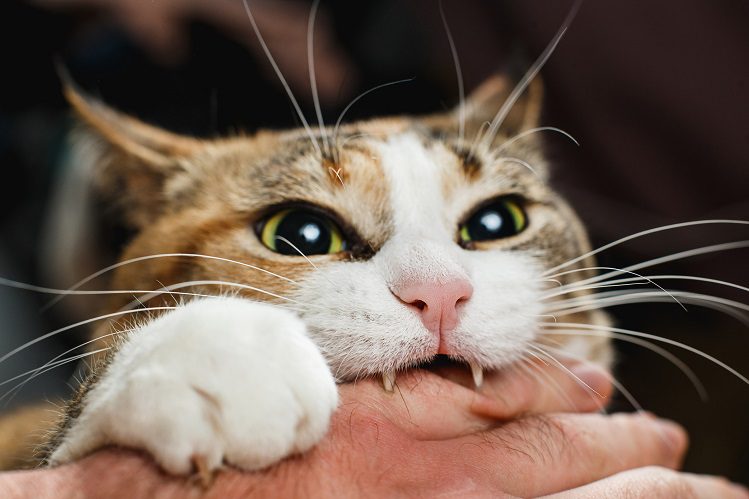
Based on the reasons, ways to deal with the aggressive behavior of the pet become clear. But let’s sum it up:
Buy a variety of toys for your cat so that she does not get bored and finds an outlet for her hunting instincts.
Give your pet enough time, because cats suffer greatly from the lack of attention of the owner.
Take your cat to the veterinarian regularly for check-ups, and if there are strange behaviors, sign up to the clinic immediately.
Hormonal surges can be eliminated on the operating table at the veterinarian.
Mental problems and stress can be dealt with with the help of a zoopsychologist.
Do not touch the cat if it is not in the mood for affection and communication. Cats are wayward and independent animals, they do not like being imposed on them.
Correct the behavior of the cat even when it is small. Do not let the baby bite people’s hands, scratch and throw themselves on their feet, otherwise he will grow up and continue to do this.
Respect and love the cat, treat it with kindness, then it will not have reasons for aggression and self-defense.
You can try to cope with the unwanted behavior of the cat on your own, but if it doesn’t work out, be sure to seek help from a specialist.



